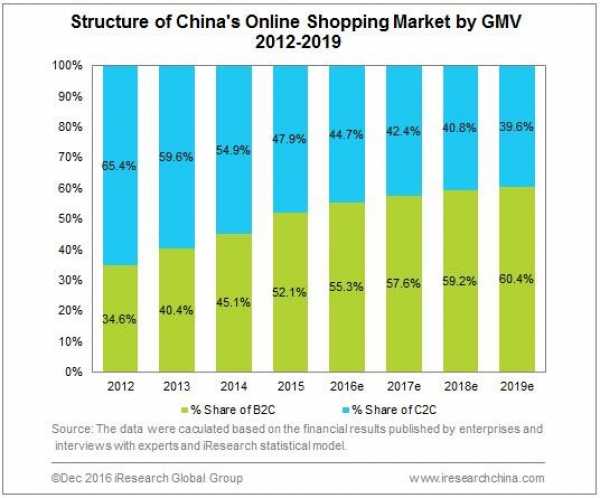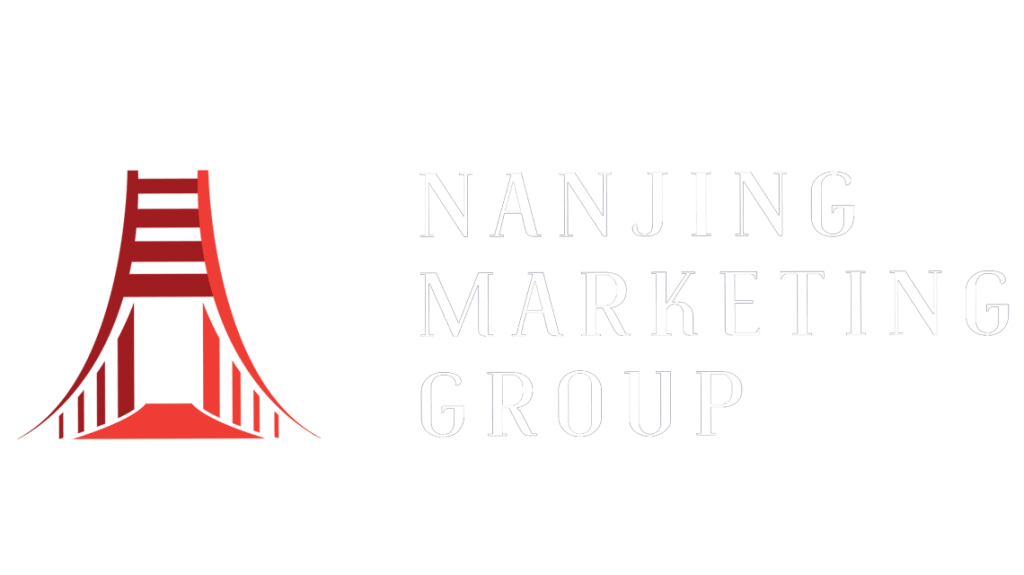Saying China is moving towards becoming a cashless society is stating the obvious – I’ve mentioned how highly appreciated the WeChat Wallet feature is in my last blog post. In 2017, subway stations were one of few places left where you had to use either coins or banknotes – but now, all you need to do is scanning a QR code. China’s been changing constantly, leaving no space for those who drag their feet. It might be particularly important for those of you who plan on engaging in e-commerce business in China (or already have), but I think anyone who likes to stay well-informed should read the post as China’s been leaving the West far behind.
E-commerce in China
Taobao and JD’s revenue proves online shopping is what Chinese people, especially Millenials, depend on – not to mention that Alibaba beat its last year’s record in just a few hours. According to the report released in 2016 by Worldpay, a leading global payment processing company, China’s total e-commerce market value will reach $1.42 trillion by 2020, almost twice that of the US ($779 billion) and more than nine times that of Japan ($153 billion). So it’s no wonder that getting into this fast-growing market has become a topic of broad interest – both in and outside of China.

One of the key elements of building an e-commerce platform in China is choosing the right payment method. We think there’s no point in discussing all the available options because only three of them are accessible for foreign companies entering the Chinese market. No worries though, they also happen to be the most popular ones.
Payment method Overview: Western countries vs. China
Every country has its own favourite payment method. In Poland, it’s PayU, for example, but the fact we like it doesn’t make it internationally accepted, unfortunately. However, some payment platforms are recognized and commonly used worldwide:
- Credit Cards: Visa, Mastercard etc.
- Third-party payment solutions: PayPal, Google Wallet, Amazon Payments, Authorize.net, Stripe, etc.
- E-bank payments
But what perfectly fits into one place doesn’t have to be an ideal match for another. And that is how many foreign companies failed having entered the Chinese market – they didn’t understand Chinese people’s reluctance to use PayPal, which may be accepted internationally, but is not as trusted (and convenient) as local solutions in China. Chinese platforms mostly rely on an escrow function, which is highly appreciated by Chinese customers as they tend not to trust merchants. Therefore, I’d even risk a statement that people in China are not very likely to buy from websites which only accept credit card payments.
Another thing to note is that PayPal is not as reliable in China as it is elsewhere. Based on my personal experience, I can say it happened more than once I was not able to purchase a product I wanted because PayPal failed me in China.
To get you an idea of which payment platform to choose, we prepared a short introduction of the three top ones, which you can’t survive without in China.
Third-Party Online Payment Market

According to iResearch, the three platforms that made it to the top of their “China’s Third-Party Online Payment Market in Q2 2017” report are Alipay, UnionPay and TenPay with shares of 28%, 27% and 12%. In recent years, users have inclined towards mobile payment methods, which are faster and more convenient than the desktop transfers.
Overall, China’s Third-Party Mobile Payment Market in Q2 2017 reached over 23 trillion, i.e. it rose by 22.5% compared to the previous year’s results. Alipay took 55% of the third-party mobile payment market share, TenPay – 39.8%, and other payment companies had a share of 5.8% in total, which clearly shows the duopoly of Alipay and TenPay in the Third-party mobile payment market has stabilized.

Alipay

Alipay is a part of the Alibaba Group; it’s the most commonly used online payment platform in China. Alipay operates within more than 180 financial institutions, including Visa and Mastercard, to provide payment services to e-commerce platforms.
According to its users’ opinion, Alipay has a more extensive range of online and offline merchants. And as it’s a “baby” of Alibaba Group, it’s the only payment option accepted by Tmall and Taobao, two giant e-commerce platforms having an 83% share of the mobile online shopping market, according to iResearch. What’s also worth mentioning is that Alipay is a standalone app, which makes it considered a more secure service than TenPay, for example, which is integrated into WeChat and QQ apps.
How does it work?
- Alipay deducts payment from the buyer’s Alipay account in real-time in CNY and settles the payment to your account in a chosen currency.
- Supported currencies: USD, EUR, JPY, GBP, CAD, AUD, SGD, CHF, SEK, DKK, NOK, NZD, THB, HKD.
- Withdrawal: the minimum amount is $5,000.
- Cost: it depends on your monthly transaction volume and ranges from 1.8% to 2.2%.
Alipay application requirements:
- Valid Business Registration Document, ID certificates of Legal Representative, Shareholder and Primary Contact Person.
- Valid URL to implement Alipay, i.e. your website/e-commerce platform is complete and working properly.
- The business category must comply with the Laws of China and meet Alipay requirements.
TenPay

TenPay is Tencent’s online payment platform, which has more than 200 million individual users and more than 400 thousand enterprise users. As it’s integrated into WeChat and QQ apps (WeChat Wallet & QQ Wallet), its main advantage is a significant user database, with almost a billion WeChat users. Many of them state they like WeChat Pay for how convenient it is to use it, especially when it comes to peer-to-peer transfers, even as small as 1 Yuan. Moreover, TenPay’s great advantage is it may be linked to your WeChat Official Account, which allows your viewers to pay directly in the app.
On July 3, 2017, TenPay launched a new platform for WeChat (pay.wechat.com/cn) for cross-border merchants and service providers, which allows them to settle TenPay for their websites themselves. After submitting all the materials, the registration link is sent via e-mail – the process takes about 7-15 working days.
How does it work?
- Similar to Alipay, TenPay deducts the payment from the buyer’s account in real-time in CNY and settles the payment to your account in a chosen currency.
- Supported currencies: GBP, HKD, USD, JPY, CAD, AUD, EUR, NZD, KRW, THB, SGD, RUB
- Withdrawal: the minimum amount is $5,000
- Cost: a 1.0-2.0% commission on all transactions
TenPay application requirements:
- Business Registration Certificate, Financial License, Anti-Money Laundering Questionnaire, ID certificates of Directors, Main Contacts and Legal Representatives.
- Industries must be compliant with the Laws of China and TenPay Requirements.
UnionPay Online Payment(UPOP)

UnionPay is an online transaction platform integrated with various online payment methods. It is China’s first financial-level pre-authorization service for secured transactions. The system allows payment for online shopping at any merchants that accept UnionPay. It launched a cross-border payment service as early as in 2007. Here are some good reasons to choose it:
- 4.5 billion credit & debit cards worldwide
- Credit & debit card payments online
- Available in more than 150 countries worldwide
- Settled in: EUR, USD, JPY & HKD
How to integrate UnionPay into your website then?
- Call UnionPay service number 4007795516 and connect with their English customer support.
- Information and documents you will need to prepare beforehand:
- Name of a contact person
- Contact number
- Contact email address
- Registered name of enterprise business license and registered capital
- Your e-commerce website URL and registered address
- Enterprise introduction (management business scope, type of selling, registration date, etc.)
- Expected average monthly online turnover
- Currency of transaction and clearing
- Cost: depends on an individual agreement.
Our tip: if you are running an e-business and want to engage in the Chinese consumer market either for in-country e-Commerce or outside business aiming at Chinese travellers, you may want to use UnionPay as one of your payment options.
Summary
To sum it all up, it should be mentioned that among the three major third-party payment platforms, UnionPay is the one with the broadest audience. It’s because all the debit cards and most of the credit cards issued in China belong to the company, and that makes it a good choice. However, as the mobile payment market is growing, a vast number of Chinese people use bank cards just as a means of linking their bank accounts to their phones, i.e. Alipay or TenPay. And that is why we highly recommend using one of these two payment gateways. Besides, both of them work with Stripe now.

What you need to know is that Alipay entered the third-party payments market much earlier; hence it not only takes much more significant market share but also gained users’ trust and loyalty. I asked our team members, and although many of them said they used both of the platforms when I told them to choose one, they picked Alipay for its discount coupons and huabei (a virtual credit card). However, TenPay has been winning people’s hearts with the emphasis it’s put on the red packet marketing in recent years. And as it’s nearly impossible to find a Chinese person not using WeChat, the payment platform has been driven by transactions between individuals. It’s generally more focused on smaller transaction amounts, i.e. those which don’t exceed RMB 1,000.

Which one to choose then? I think a good idea is to pick at least two of them, for example, UnionPay + Alipay or UnionPay + TenPay. However, NMG Team recommends you get all three of them – it’s important to ensure the very best customer experience, isn’t it?
What’s your opinion on the subject? We’d love to know which payment platform you like and use more!
